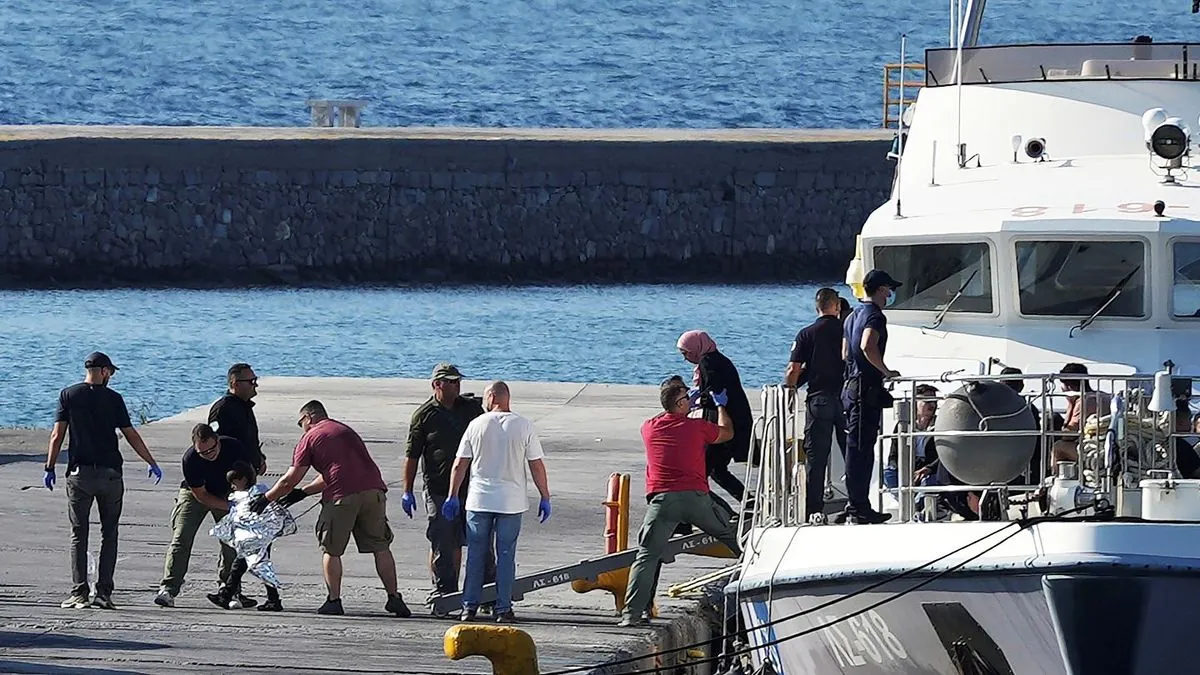On September 23, 2024, a tragic incident unfolded off the coast of Samos, a Greek island in the eastern Aegean Sea, as a migrant boat capsized, leading to the loss of lives and a frantic search for survivors. The event occurred near the rocky shores of Agios Isidoros, situated in the northwestern part of the island.
According to reports, three individuals have been confirmed dead, while approximately 25 others are believed to be missing. The Greek Coast Guard has successfully rescued five migrants thus far, demonstrating the challenging nature of such operations in the Mediterranean waters.
A comprehensive search and rescue mission is currently underway, involving four coast guard vessels and a helicopter. The Hellenic Coast Guard, established in 1919 and operating under the Ministry of Shipping and Island Policy, is spearheading these efforts along Greece's extensive 13,600-kilometer coastline.
Samos, the eighth largest Greek island by area, has long been a significant point of entry for migrants due to its proximity to Turkey, separated only by the mile-wide Mycale Strait. This strategic location has made it a crucial part of one of the world's deadliest migration routes.
The island, with a population of about 33,000 inhabitants, has a rich history dating back to at least 3000 BC and was once an important center of Ionian culture. Ironically, this land that gave birth to the ancient Greek philosopher Pythagoras now witnesses the struggles of those seeking a new life in Europe.
Greece's role as a gateway for migrants and refugees from the Middle East, Africa, and Asia has been prominent, especially during the European migrant crisis that peaked in 2015. During that period, nearly one million people arrived on Greek islands, primarily using inflatable dinghies to make the perilous journey.
The main nationalities of migrants arriving in Greece were Syrian, Afghan, and Iraqi, fleeing conflict and seeking better opportunities. In response to the overwhelming influx, the EU-Turkey deal was implemented in 2016, aiming to reduce migrant flows to Greece.
While the number of arrivals decreased following this agreement, recent data indicates a resurgence in migrant flows last year. This latest incident off Samos underscores the ongoing challenges faced by both migrants and authorities in managing these dangerous sea crossings.
Frontex, the European Border and Coast Guard Agency, continues to assist Greece in border control efforts. However, Greece has faced criticism for its handling of migrants and asylum seekers, highlighting the complex nature of the situation.
As rescue operations continue, this tragedy serves as a stark reminder of the risks associated with irregular migration and the urgent need for comprehensive, humane solutions to address the root causes of these dangerous journeys.
"Our teams are working tirelessly to locate and rescue any survivors. The challenging sea conditions and rocky coastline make this operation extremely difficult, but we remain hopeful."
The incident near Samos, known for its Muscat wines and Mediterranean climate, contrasts sharply with the island's reputation as a tourist destination. As authorities work to manage this crisis, the international community watches closely, recognizing the need for collaborative efforts to prevent such tragedies in the future.
